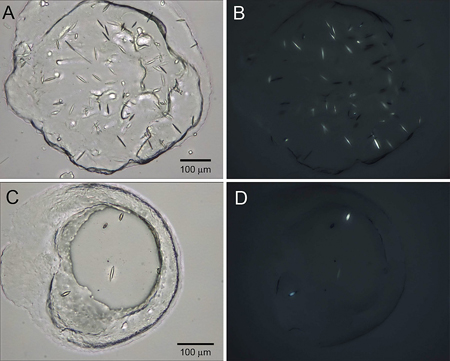
- Details
- Tuesday, 04 April 2017

Membrane proteins perform critical functions in living cells related to signal transduction, transport and energy transformations, and, as such, are implicated in a multitude of malfunctions and diseases. However, a structural and functional understanding of membrane proteins is strongly lagging behind that of their soluble partners, mainly, due to difficulties associated with their solubilization and generation of diffraction quality crystals.
Crystallization in lipidic mesophases (also known as in meso or LCP crystallization) is a promising technique which was successfully applied to obtain high resolution structures of microbial rhodopsins, photosynthetic proteins, outer membrane beta barrels and G protein-coupled receptors. In meso crystallization takes advantage of a native-like membrane environment and typically produces crystals with lower solvent content and better ordering as compared to traditional crystallization from detergent solutions The method is not difficult, but requires an understanding of lipid phase behavior and practice in handling viscous mesophase materials. Here we demonstrate a simple and efficient way of making LCP and reconstituting a membrane protein in the lipid bilayer of LCP using a syringe mixer, followed by dispensing nanoliter portions of LCP into an assay or crystallization plate, conducting pre-crystallization assays and harvesting crystals from the LCP matrix. These protocols provide a basic guide for approaching in meso crystallization trials; however, as with any crystallization experiment, extensive screening and optimization are required, and a successful outcome is not necessarily guaranteed.
